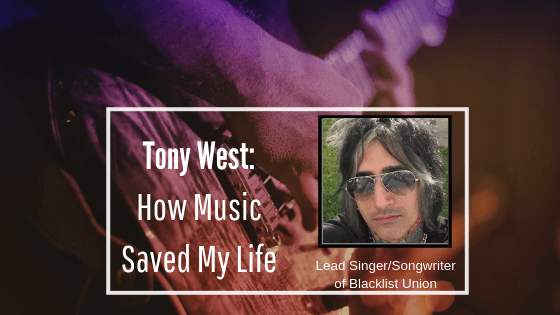Everyone’s got some kind of baggage, and some way of coping with the negative aspects of their lives. Music—groups like the Dead Kennedys, Black Flag, David Bowie—helped me survive through traumatic experiences. As a kid, I was hurt a lot, held underwater by my mother, and my father showed me explicit material when I was just six years old. Navigating life with that kind of a background wasn’t easy. I took some dangerous turns, got involved with drugs and alcohol, and most of my relationships were messy.
I realized eventually that I was wrong, that I was seeing the world through tinted lenses. That realization led me to write the song “Evil Eye,” which is a sort of representation of that distorted view and how damaging it was. I used music to survive, and I knew that I wasn’t the only one.
With all Blacklist Union’s songs, I draw on my life. Everything is tied to something specific — memories and relationships that impacted me. Birth, death, addiction, recovery, my demise, winning, losing, love, resentment, mourning. My lyrics are a sort of therapy for me; rather than keep everything with me, I can put them into words and music and let them go.
A lot of painful experiences have led to the creation of my music. “After the Mourning” was written for Bianca, an ex-girlfriend, after she died. Shortly after her death, my ex-wife Tracie died, too. Thrown back into mourning, I wasn’t able to process all that emotional trauma and sank into a really low point. The death of another friend wrenched me out of that dark place, made me drop the drugs, and I turned back to music, my therapeutic escape.
And while it can be tough to write about the things that hurt you, I know that doing so helps not only me, but those listeners who can relate to the music. That’s why I don’t want to shy away from those dark themes; someone who needs to hear my words and my experiences just might be listening.
When I say music saved my life, I don’t say it lightly. It’s taken time for me to come to terms with all the traumatic elements of my childhood and how they still affect me, but I’m grateful that I’ve always had music as an outlet and a way of coping. Even now, I believe my greatest accomplishment is simply staying alive and staying true to myself. Without music, I wouldn’t be who I am today.
